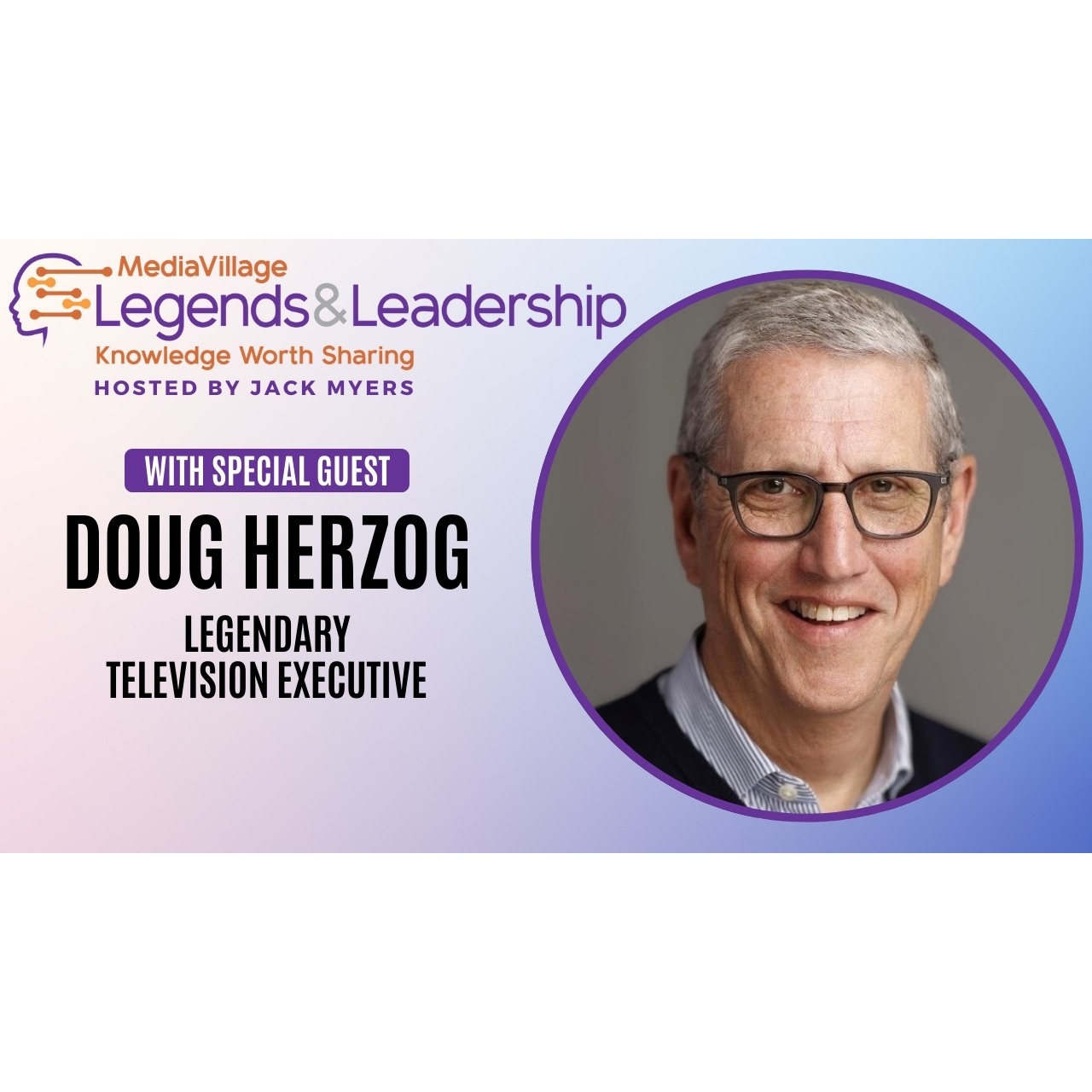A Candid Conversation with Doug Herzog on the Future of Television (VIDEO)

As the television landscape undergoes a seismic shift with the rise of streaming platforms, cord-cutting, and evolving audience preferences, one figure stands at the crossroads of its rich past and uncertain future: Doug Herzog. In the latest installment of Jack Myers Legends & Leadership series, Herzog - former president of MTV Networks and the executive responsible for launching the careers of Jon Stewart, Stephen Colbert, and many more -- shares his candid thoughts on the future of broadcast and cable television. This conversation promises to be a must-watch for anyone invested in the future of media, from executives to creatives and curious viewers alike.
Doug Herzog’s storied career in television offers a unique perspective on where the industry has been and where it’s headed. As the former head of networks like MTV, Comedy Central, and VH1, Herzog played a key role in shaping cable television’s golden age, responsible for iconic shows that became cultural phenomena. Whether it was MTV’s The Real World or The Daily Show with Jon Stewart, Herzog helped create destination television that not only garnered loyal viewership but also transformed the networks themselves into powerful brands. His contributions laid the foundation for what cable networks like Nickelodeon, Lifetime, and others would become: places viewers would return to again and again for a specific, branded experience.
However, Herzog now sees a stark contrast between those halcyon days of cable television and the current environment dominated by streaming platforms. In his discussion with Jack Myers, he delves into one of the biggest challenges facing today’s TV landscape: the absence of true viewer loyalty and the dilution of content branding. “Back then, networks like MTV and Nickelodeon were destinations,” Herzog reflects. “You knew exactly what you were getting when you tuned in. It was like going to a favorite restaurant where you trust the chef. Today, streaming platforms are more like a giant Walmart -- there’s something for everyone, but nothing really stands out.”
This one-size-fits-all mentality, Herzog argues, is contributing to a homogenization of content that lacks the distinct, niche appeal of cable’s early years. Streamers like Netflix and Amazon Prime, while producing more content than ever before, often prioritize quantity over quality and breadth over depth. This trend raises important questions about the future of content creation and curation, especially as these platforms begin to shift their priorities away from the kinds of unique, risk-taking shows that define cable television. For advertisers, this means fewer opportunities to build strong associations with specific brands, and for networks, it presents a challenge in maintaining the kind of viewer loyalty that used to be their bread and butter.
Herzog’s insights are particularly timely as streaming platforms increasingly dominate media consumption. With more content options than ever before, networks and streamers are struggling to find new ways to attract -- and more importantly, retain -- audiences. Yet, as Herzog points out, this quest for mass appeal often comes at the expense of fostering the kind of passionate fan bases that cable networks once excelled at cultivating. “You’re seeing streamers take fewer risks,” he says, noting the shift from bold, innovative programming to safer, more formulaic fare. In his view, this is a missed opportunity, not just for networks but for viewers who crave more than just the next binge-worthy show.
The conversation also explores the changing priorities of advertisers. Gone are the days when networks could rely on high ratings and audience loyalty to attract premium advertising dollars. Today, with the rise of digital advertising and data-driven marketing, advertisers are less focused on aligning with specific content and more interested in reaching the broadest audience possible through platforms that provide detailed metrics and targeting capabilities. Herzog laments this shift, arguing that it has contributed to the erosion of the kind of creative, branded programming that once made television an essential cultural experience.
Herzog’s opinions are not just reflective of nostalgia; they offer a roadmap for TV executives navigating today’s complex media environment. His deep understanding of audience behavior, network strategy, and the changing dynamics between content creators and advertisers makes his perspective essential for anyone looking to understand the future of television. In an age where streaming services seem to dominate every conversation about media, Herzog offers a reminder that creating truly memorable, impactful content requires more than just technological innovation - it requires a deep connection with viewers, something today’s platforms struggle to maintain.
This conversation between Jack Myers and Doug Herzog is more than just a retrospective -- it’s a look ahead at the future of television, informed by the past but laser-focused on the challenges and opportunities of today. Herzog’s relevance to modern TV executives cannot be overstated. With three seasons of his interview series Basic: When Cable Was Cool, Herzog has remained a vital voice in the media landscape, consistently offering insights into the evolution of television and the cultural forces that shape it.
If you care about the future of broadcast and cable TV, the shifting priorities of networks and advertisers, or simply want to hear from one of the industry’s most influential voices, this conversation is a must-watch. Doug Herzog’s candid reflections, paired with Jack Myers’ thoughtful questioning, promise to deliver a rich, insightful discussion about the state of television today -- and where it’s headed next.
Tune in to Jack Myers Legends & Leadership at www.LegendsLeaders.org to watch this conversation and gain invaluable insights into the future of television, straight from one of the industry’s most legendary leaders.


